Lessons in Coping with Life from Swami Vivekananda
(Continued from the previous issue. . .)
Enduring Physical Sufferings and Extreme Strain
Unaccustomed to the severe winters of the Midwest, Swamiji suffered intensely from cold; travelling by train from each one-night stand to the next was gruelling; accommodations in small town-hotels, where he sometimes had to stay, were primitive in the extreme. Then, too, the constant demands of the lecture platform told on him. Everywhere he went people flocked about him, and clergymen—particularly Unitarians —beseeched him to lecture from their pulpits. But if the Swami spoke time and again to enthusiastic audiences, he also had to run the gauntlet of innumerable irritating questions that disclosed both a monumental ignorance of Hindu culture and erroneous ideas of Indian life. Some questioners flatly contradicted him on subjects on which they were in entire ignorance; then he fell upon them like a thunderbolt. Or, perhaps he would retort with sarcastic humour.
A number of university men who had taken up ranch life and become cowboys wanted to put Swamiji to the test. So they invited him to lecture to them. When he arrived they escorted him to a wooden tub, which was to serve as a platform. The Swami commenced his discourse and soon became absorbed in it. Suddenly there was the deafening noise of firing, and shots whizzed past his ears! But he went on with his lecture to the end, as though nothing had happened. He had withdrawn into that innermost consciousness of which he was speaking. When he had finished, the cowboys crowded round him and pronounced him ‘a right good fellow’.
Indeed, the Swami had many odd experiences. One, he related as a joke on himself. He was exhausted when he arrived at a particular town. The secretary of the reception committee showed him courteously into a small, dark room. It contained a rather frail and rickety armchair. Seeing it only dimly, the Swami sat down on it, when, it gave way in the most awkward manner. He could not extricate himself. So he just had to stay in that uncomfortable position and wait for the secretary to come to escort him to the platform. At last the secretary came, calling, ‘Come, Swami; the audience is waiting for you!’ ‘Well, then,’ Swamiji cried out, ‘it will have to wait till you break this chair and extricate me from the nice plight I am in!’
Once a Negro porter, who had seen him being welcomed by a reception committee, came up to him and said that he would like to shake hands with one of his own people who had become a great man. The Swami warmly clasped his hand and exclaimed, ‘Thank you! Thank you, brother!’ He never minded being mistaken for one of them.
In barbers’ shops of northern as well as southern cities, he was for this very reason not infrequently shown the door with scant courtesy. Several times in important cities of the south he was brusquely refused admittance to hotels because of his dark colour, but even in such situations he refused to say that he was an Oriental. When the hotel proprietors who had turned him away, read of his lectures in the papers the next morning or heard his name spoken everywhere with deference they would hurry to him and apologize. When asked why he had not told them who he was, Swamiji revealed his inner nature by saying, ‘What! Rise at the expense of another! I did not come to earth for that!’
The Swami received invitation after invitation to speak in churches and to clubs and private gatherings. Most of these he accepted, thinking each to be an opportunity of spreading the truths of Vedanta, of giving spiritual help, and of presenting the true needs of India before the American people. He gave himself and his time unstintingly in service, until the mental and physical strain became intense.
Often he had to deliver extempore twelve to fourteen lectures a week, sometimes even more. The exertion was so great that after a time he felt as though he had exhausted himself intellectually. In this difficulty he was aided in wonderful ways. For instance, at dead of night he would hear a voice shouting at him the thoughts that he was to speak on the following day. Sometimes it would come as from a long distance, speaking to him down a great avenue; then it would draw nearer and nearer. Or it would be like someone delivering a lecture alongside of him, as he lay on his bed listening. At other times two voices would argue before him discussing at great length subjects that he would find himself repeating the following day from the platform or the pulpit. Sometimes these discussions introduced ideas that he had never heard of or thought of previously.
Withstanding Reactions
Ever since his triumph at the Parliament of Religions, resentment toward him had been smouldering among the more orthodox and narrow members of the Christian clergy. From time to time, in the wake of his tour through the Midwest, that resentment had flared up in whispered slander and acrimonious sermons. But in Detroit, the opposition exploded in full with unrestrained force. Many missionaries openly and vehemently denounced the Swami and ‘his false doctrines’ from their pulpits. The Detroit newspapers flamed with letters to the editors, bitterly attacking him on the one hand, fervently supporting him on the other. The Swami made no effort to defend himself or to pacify his detractors. On the contrary, he had no patience with small-mindedness or fanaticism.
Sometimes notes and letters were sent to persons who had invited him to their homes stating that he was not what he represented himself to be and floated all kinds of calumnies against him. Occasionally this malice had the desired effect, and the Swami would find the doors of his hosts-to-be closed to him! But in most instances, the error would be discovered after a time, and those who had rebuffed him would call and apologize and become greater friends than ever.
For many months after the Parliament of Religions the Swami had no united support or recognition from India. An unaccredited delegate to the Parliament, long unrecognised officially by his own country, he stood alone against all this opposition and criticism. This gave great advantage to those who would harm him and cast doubt upon his standing in India and upon his honour. Yet amid all these difficulties and distractions the Swami kept his equanimity, trusting the Lord and consoling himself with the thought that the highest-minded Christians—clergymen and distinguished laymen alike—were his avowed admirers. Many espoused his cause and were even his followers. Above all, he knew that if it was the will of God that his message should be broadcast, nothing on earth could stand against him. He would ask, ‘Why should I attack in return? It is not the monk’s place to defend himself. Besides, Truth will have its way. Truth shall stand.
’ Through his lectures and talks the generality of Americans appreciated the depth and beauty of Hindu religion and culture. ‘I am the one man who dared defend his country,’ he was to write on May 6, 1895, to an Indian disciple, ‘and I have given them such ideas as they never expected from a Hindu.’
Swamiji discovered that the Slayton Lyceum Lecture Bureau (which he had engaged for travelling and speaking across America) was exploiting and defrauding him. He wrote to Mrs. Hale, ‘I am thoroughly disgusted with this Slayton business and am trying hard to break loose. I have lost at least $5,000 by joining this man . . . I hope to do some private lecturing here and then go to Ada [Ohio] and then back to Chicago. . . . President Palmer has gone to Chicago to try to get me loose from this liar of a Slayton. Pray that he may succeed. Several judges here have seen my contract—and they say it is shameful fraud and can be broken any moment, but I am a monk—no self-defence.’ But by the time the Swami returned to Detroit in March, Mr. Palmer had dealt with the lecture bureau and got the fraudulent contract annulled. Thus the Swami’s tour with the lecture bureau through the mid-western and southern States of America came to an end between the first and second visits to Detroit, and he was free.
Envious of Swamiji’s personal success at Chicago’s Parliament of World Religions in 1893, the Brahmo leader Pratap Chandra Mazoomdar had kept up a long campaign of vituperative slander against Swamiji’s character, rousing many Bengalis to his cause of defaming Swamiji. However, Swamiji ignored the false slander against him in America and India, and demonstrated indifference towards the accolades Americans were simultaneously heaping upon him. His only concern was:
I have an old mother. She has suffered much all her life and in the midst of all she could bear to give me up for the service of God and man; but to have given up the most beloved of her children—her hope—to live a beastly immoral life in a far distant country, as Mazoomdar was telling in Calcutta, would have simply killed her.
‘I Have a Message for the East’
Speaking in Madras, the Swami said,
Now I come to reform societies in Madras. They have been very kind to me. They have pointed out that there is a difference between the reformers of Bengal and those of Madras. . . Madras is in a very beautiful state just now. It has not got into the play of action and reaction as Bengal has done. Here there is steady and slow progress all through; here is growth, and not reaction. In many cases, and to a certain extent, there is a revival in Bengal; but in Madras it is not a revival, it is a growth, a natural growth. . . Some of these societies try to intimidate me to join them. . . A man who has met starvation face to face for fourteen years of his life, who has not known where he will get a meal the next day and where to sleep, cannot be intimidated so easily. A man, almost without clothes, who dared to live where the thermometer registered thirty degrees below zero, without knowing where the next meal was to come from, cannot be so easily intimidated in India. This is the first thing I will tell them—I have a little will of my own. I have my little experience too; and I have a message for the world which I will deliver without fear and without care for the future. To the reformers I will point out that I want rootand-branch reform. Where we differ is in the method. Theirs is the method of destruction, mine is that of construction. I do not believe in reform; I believe in growth. I do not dare to put myself in the position of God and dictate to our society, ‘This way thou shouldst move and not that. That is my position.’
In another lecture he said, ‘My plan is to start institutions in India, to train our young men as preachers of the truths of our scriptures, in India and outside India. Men, men, these are wanted’—sincere to the backbone. ‘A hundred such and the world becomes revolutionized.’ He describes what his ideal of patriotism is: a heart to feel for the millions who have become next-door neighbours to brutes; a head to conceive a way out of their misery; and strong hands and mind to execute even in the face of opposition what one thinks is the right thing to do. He defined a traitor in strong terms as being one having been educated at the expense of the masses does not pay the least heed to them. He observes:
This national ship . . . my friends . . . has been ferrying millions and millions of souls across the waters of life. . . . But today, this boat has sprung a leak; and would you therefore curse it? Let us go and stop the holes. Let us gladly do it with our hearts’ blood. . . . And if we cannot let us sink together but never utter a curse.
In another speech he said, ‘This is the great practical application of the Upanishads, that they give us strength. They tell us that we are essentially Spirit—omnipotent and omniscient.’ ‘If the fisherman thinks that he is the Spirit, he will be a better fisherman; if the student thinks that he is the Spirit, he will be a better student.’ From this faith in the truth about ourselves, strength will come and fear will go; freedom will come and privilege will go. ‘Liberty is the first condition of growth.’
He pointed out that religion was the lifecentre of the country and that the role India had to play in the harmony of nations was to freely distribute religious ideas and ideals when other nations needed it. It is therefore incumbent on all Indians, especially the youth, to inherit the ancient religious ideas which India represents. Aping the West was not the way, for a sheep in lion’s clothing does not become a lion. And, said he, if India gave up its religious mooring and takes to other ideals, in three generations it will be an extinct nation.
Speaking gloriously on the greatness of India, Swami said,
If there is any land on this earth that can lay claim to be the blessed Punya Bhumi, to be the land to which all souls on this earth must come to account for Karma, the land to which every soul that is wending its way Godward must come to attain its last home, the land where humanity has attained its highest towards gentleness, towards generosity, towards purity, towards calmness, above all, the land of introspection and of spirituality—it is India. Hence have started the founders of religions from the most ancient times, deluging the earth again and again with the pure and perennial waters of spiritual truth. Hence have proceeded the tidal waves of philosophy that have covered the earth, East or West, North or South, and hence again must start the wave which is going to spiritualise the material civilisation of the world. Here is the life-giving water with which must be quenched the burning fire of materialism which is burning the core of the hearts of millions in other lands. Believe me, my friends, this is going to be.
In spite of inspiring the Indians to be proud of their national heritage yet Swamiji had to face some other unsavoury on the Indian soil too
Swamiji’s Experiences on the Indian Soil
At Cranganore, before Swamiji’s going to the West, people saw him sitting, early one morning, under a banyan tree near the Kali temple. The Swami tried to enter the temple to offer worship to the deity; but the temple guards prevented him. It was difficult to know the caste of people, especially of those who came from outside Kerala, and therefore there was this custom. Without getting annoyed, he returned to the tree after bowing down to the Devi from outside. His ochre robes and brilliant eyes attracted the attention of a young man, who approached him with the intention of having some fun; but the young man came away disappointed, when he found that the Swami was not as he had thought him to be. Just then two princes of the Cranganore palace came to the temple, and the young man just mentioned brought them to the Swami sitting under the banyan tree. The two princes were well versed in the scriptures. They could see from the Swami’s features that he was not an ordinary person. They had an argument in Sanskrit over the issue of caste consideration. The Swami, however, did not want to interfere with their local tradition, even though the princes were later prepared to allow a person of his calibre to enter the temple. They argued with the Swami for two days, and were defeated. On the third day they approached the Swami with the desire to have his holy company. When they reached the place where he was, they found him meditating. After the Swami had come back to normal consciousness, he conversed with the princes in Sanskrit.
The public celebration of Sri Ramakrishna’s birthday fell on 27 February, 1898. The observation by such a public celebration had been started by Surendranath Mitra and other devotees in 1881, while Sri Ramakrishna was still alive, and had been celebrated annually at Dakshineswar. It had continued each year since then, and had given everybody an opportunity to gather in one place for a shared purpose, with brotherly feelings. However, in 1898, the Trustees of the Kali temple at Dakshineswar raised the objection that the place would be defiled if the foreign disciples of the Swami attended the festival. . . Ultimately, the birth anniversary [public celebration] of Sri Ramakrishna was celebrated at the Radha Ramanji Thakurbari of Purnachandra Daw. This was at Bally, on the same bank of the Ganges as Belur, but slightly up the river. . . A grand success as it was, it put to shame Trailokya Babu, to whom, or to whose action of objecting to the celebration at Dakshineswar, none among the thousands who took part in it at Bally, gave a thought. . . All the four western disciples of Swamiji—Miss Muller, Mrs. Ole Bull, Miss Josephine MacLeod and Miss Margaret Noble—participated in the celebration.
The Grand Culmination
On 1st May 1897, at the house of Balaram Bose in Calcutta Swamiji formulated his plans of the objects of the Ramakrishna Mission Association. Master Mahashaya and even some of Swamiji’s brother-disciples saw in that scheme an imitation of western methods. They claimed that it was quite different from what Ramakrishna had taught: living in seclusion, chanting the name of God, remembering the Lila of the incarnation, and discrimination between what is real and what is unreal. Sri Ramakrishna had specifically pointed out that when God appeared before one, would one ask for building schools, colleges, hospitals and dispensaries, or would one ask for the love of the lotus feet of God. Swamiji had to burst out saying that they little understood Ramakrishna and that they were trying to limit Ramakrishna to their little understanding of him. It was Holy Mother who supported Naren by pointing out that the case of Ramakrishna was entirely different in that he had four suppliers of needs. If the monks do not engage in service activities, why society would support them and their time instead of being spent in religious practices would be spent on getting a morsel of food. She was definite when she said that those who would not listen to Naren were free to leave.
Swamiji did burst upon society like a bomb shell and it followed him like an obedient dog.
His Inner Strength
The secret of this unimaginable spirit behind Swamiji’s tremendous activities, in spite of opposition from all quarters is his faith in himself, his faith in his Guru Ramakrishna, his tremendous love for humanity and his tremendous appreciation of India’s heritage and contribution to world thought. He had come with a mission, to remove the miseries of humanity, and this he had to do no matter what people may say. In fact Ramakrishna had asked him, what will you think if people speak ill of you? It was an indication of the fierce resistance Naren was to meet at every stage with none to depend on other than Ramakrishna.
Once the Holy Mother had seen in a vision that Ramakrishna rushed past Naren and merged in the Ganges and that Naren was sprinkling that water on all present, both of the East and the West, and that they were getting liberated immediately.
Swamiji always believed that before Sri Ramakrishna entered Mahasamadhi, She whom he called Kali, had taken possession of himself and would not give him rest until Her work was accomplished to perfection. He looked upon himself as a ‘voice without a form’, the voice of Sri Ramakrishna without his form. He was the mouth-piece for all that Ramakrishna spoke through him. Being rooted in the indwelling god and possessed of immense faith in oneself, Naren could accomplish in less than forty years tremendous transformations for which the world will be forever indebted to Swamiji.
He would say, you little know what infinite possibilities lie hidden behind that frail form of yours waiting to become manifested. He would ask everyone to manifest that infinite potential. He would say: after all I am just a Calcutta boy playing in the streets of Calcutta, who used to sit at the feet of the saint of Dakshineswar and listen with rapt wonderment to the nectarine words that fell from his lips. If I could do so much how much more each one of you will accomplish. On the last day of his mortal existence he said, only a Vivekananda can understand what this Vivekananda has done and yet how many Vivekanandas will be born in time. Yes, that Vivekananda will take his seat in your heart if you imbibe the spirit of Vivekananda. Will that not be nice for the youth of India!
(Concluded.)
Source : Vedanta Kesari, July, 2016

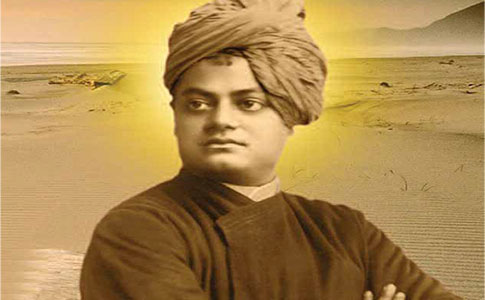
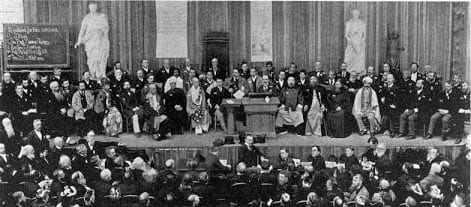
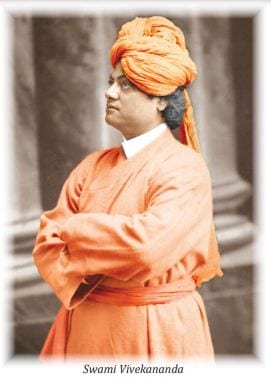
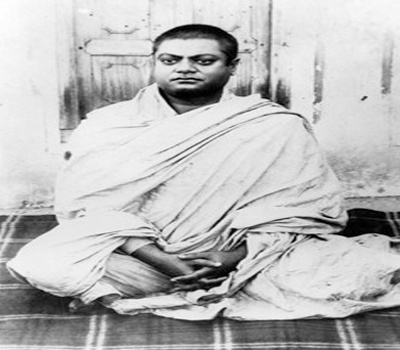

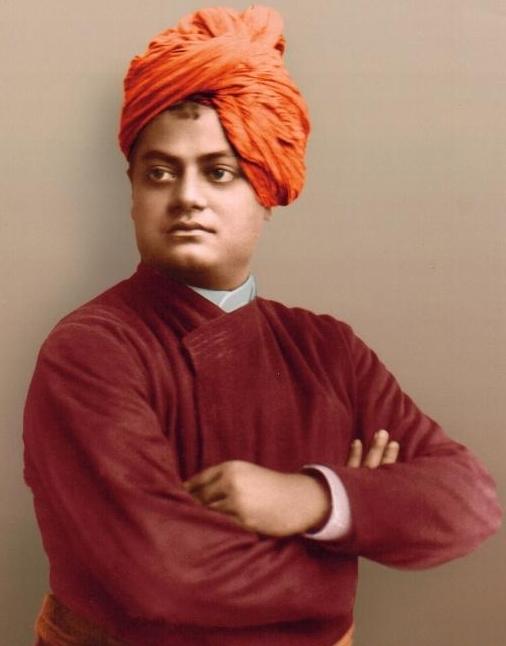
Leave A Comment